Resilience is managing balance: between your stress and fear and finding your creativity and determination. It’s really important that we give ourselves time for the difficult feelings when you’re faced with an ongoing difficulty, or a challenge that sometimes feels insurmountable.
Earlier this year I spoke publicly in a podcast interview with Bev Roberts (Living Fabulously with Bev), about my journey of recovery after surgery in 2012 to remove a tumour from within my spinal cord.
I am often encouraging clients to take risks and reveal vulnerabilities in order to find their own personal strengths. This story was about mine.
I didn’t know what the outcome of the operation would be. The big question was: would I be able to walk again. And I do now, in a certain way, after an arduous, challenging and lengthy journey, learning to move my body and walk again – from scratch. The tumor and the operation itself have left me with partial paralysis from my chest down and chronic neuropathic pain.
My spinal cord nerve fibers were really messed up by the tumour. It damaged my spine from the 3rd vertebrae (C3) to that bump at shoulder level where the neck meets the back (T3). In some places my spinal cord tissue is paper-thin. These damaged nerve fibers send bizarre signals to pain centers in my neck, shoulders, hands, legs and back. The left side of my body is stronger and holds up my right side. The right side of my body has much more physical sensation than the left side. I don’t quite know where my feet are most of the time.
Balancing is a problem. So I have learnt to (almost) fall with great style. But only after a number of more successful ‘fails’ – my left hand doesn’t bend the way it used to as a result of numerous surprise heavy landings.
Sitting is a problem, because I can no longer support my body, and most chairs just don’t work for me anymore. Stools are impossible.
I’m delighted I no longer need a wheelchair – driving a motorised one was a nightmare, and I used a manual wheelchair for quite a long time, not so much for the traditional wheeling about, but because I needed something to help me walk and sit. I now travel with my own firm plastic chair in the back of my car.
I have two favorite jokes. As a conflict resolution expert, I’d say I have ongoing conflict with gravity. As a lover of red wine, I also like to say I walk like I’m drunk when I’m sober – and really wish I could master the opposite!
The main story or the purpose for agreeing to be interviewed was wanting to talk about what that much touted word ‘resilience’ actually feels like. Resilience is a balance between stress and fear, and learning how o find creativity and determination, even when you don’t want to. Resilience is always about the inner conflict to be less or to be more. So what have I learnt?
- The initial reaction from chronic pain is fear, that’s how our nervous system is wired. The challenge of managing pain is always to find pause after that immediate emotional charge, and to find creativity in the moment – to counteract and balance that fear. It’s literally mindfulness in action.
- There is an important balance between sadness, loss and not settling for second-best! I allow myself the 5-10 minutes a day for quiet, reflective sadness for what I have lost, and then I can focus and look forward to the next physical or professional challenge.
- There’s something new to be learnt in everything! I have discovered that most men love the chance to be gallant – enthusiastically volunteering to carry my 18 kg collapsible wheelchair up flights of stairs and in other awkward situations. Men need more opportunities to be of service, to show their strength and their generosity in respectful ways. Happy to lend my wheelchair to anyone who like to test this theory.
- Our connections with others are vital and surprising. I didn’t realise how well loved I could be until I spent 4 months in hospital. Friends offered remarkable support and encouragement. I think I ate 3 hospital meals in all that time because friends brought delicious alternatives. Thankfully, otherwise I would have starved!
- Let’s not dismiss the difficult, the dark emotions in our rush to be positive and optimistic. There is a important place for the ongoing struggle, that needs to be honored and sometimes needs to be seen. We should not hide our vulnerabilities with defensiveness.
- Anger is an important emotion because in small amounts, it motivates us to try harder, to compete, to be the best we can be. But anger should not separate us from others. There is opportunity for humour, laughter and connection with others in every moment. Resilience means knowing how to use all these emotions well.
My interview with Bev was broadcast on 26 December 2016. You can listen here on Stitcher: http://www.stitcher.com/podcast/living-fabulously-with-bev/e/032-step-forward-into-what-you-really-want-elizabeth-williamson-48639410
or on iTunes https://itunes.apple.com/au/podcast/living-fabulously-bev-live/id1128767770?mt=2


